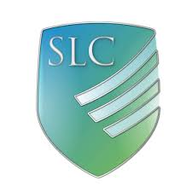Level 3 Certificate in Preparing to Work in Early Years Education and Care (RQF)
- PRIVATE
- 1 year
- Course Awarding Body
- 223Guided Learning Hours
- Course Material
- 285 Hours Total Qualification Time
- Self-study Online
- Ofqual Regulated Qualification
- 42UCAS Points
Course Overview
Your Gateway to a Rewarding Career in Childcare
This Level 3 Certificate in Preparing to Work in Early Years Education and Care is an Ofqual-regulated qualification intended for those seeking to make a significant impact in early years settings. Covering essential aspects from health and well-being to legislation and professional practice, this course prepares you to work with children aged 0-5 years and equips you with the knowledge to support children aged 5-7 years. It is ideal for those aiming to progress towards Early Years Educator status in the future. This Level 3 Certificate provides key skills to pursue various early years roles and prepare you for higher-level qualifications, offering a clear pathway to advance in both your career and academic ambitions. Ofqual is England’s main government-appointed regulatory body, regulating school and college qualifications, and vocational and technical qualifications. (Detailed information is given below).
This Early Years Education and Care Level 3 Certificate has been allocated up to 42 UCAS points, based on the grade achieved – A* – D.
| Grade | UCAS Points |
|---|---|
| A* Grade | 42 UCAS Points |
| A Grade | 36 UCAS Points |
| B Grade | 30 UCAS Points |
| C Grade | 24 UCAS Points |
| D Grade | 18 UCAS Points |
Benefits of pursuing this course;
- Earn UCAS points that can be used to enrol at university.
- Stepping stone for those who are passionate about working with children.
- Excellent qualification to progress into the health, social care, and public services sectors.
- Learn at your own pace – free of exams, stress, and deadlines.
Real-World Features of this Level 3 Certificate (RQF);
- Engage in setting up nutritious meal plans and physical activities, directly improving children’s health and wellness daily.
- Participate in creating and implementing stimulating educational activities, fostering cognitive and emotional development.
- Assess and improve the safety and well-being of children in different environments, ensuring a secure atmosphere.
- (RQF qualifications carry meaning and recognition. RQFs are regulated by Ofqual, the Office of Qualifications and Examinations Regulation that regulates qualifications, examinations, and assessments in England).
(RQF qualifications carry meaning and recognition. RQFs are regulated by Ofqual, the Office of Qualifications and Examinations Regulation that regulates qualifications, examinations, and assessments in England).
![]()
Why South London College?
Take Charge of Your Future with South London College
As a trusted online provider, South London College believes in the transformative power of education. A highly regarded learning platform in the United Kingdom, we provide individuals with life-changing opportunities. Our primary goal is to ensure our learners meet their educational needs and achieve personal growth and professional advancement. With our commitment to delivering top-notch learning materials, exceptional experiences, and comprehensive services, we strive to motivate and empower our learners to acquire new skills, enhance their existing ones, and remain competitive in their chosen fields. This is an excellent chance for individuals to obtain the Level 3 Certificate in Preparing to Work in Early Years Education and Care. Don’t let this opportunity pass you by—invest in yourself, improve your skills, and propel your career forward with South London College.
Key Benefits of Learning with South London College;
- Enjoy the most affordable prices on the market for our courses, with a price match included.
- Access expertly designed and developed e-Learning Content.
- A dedicated personal tutor and a key account manager assigned to you.
- Flexibility is our priority – study anytime, anywhere to fit your schedule.
- Receive 12 months of online access to our learning portal and tutor support.
- Develop your skills and increase employability in the UK and beyond.
- Our friendly customer support team is available to answer your questions.
- Participating Instructor led virtual group discussions. (Blended learning experience)
- 14 Days money back guarantee. (T & C apply).
- Receive quick feedback and results for your assessments.
- Interest free instalment payment plan.
- Access to free CPD courses for Continuous Professional Development.
What Will I Learn?
Create, support, and assess strategies for children’s emotional and mental health.
Plan, implement, and evaluate nutritional and exercise programmes for children.
Understand, apply, and evaluate care for mothers and infants effectively.
Engage in, evaluate, and improve reflective practices in early years.
Key Features
| Learning Outcomes |
|
| Regulated by | OFQUAL
Ofqual-regulated qualifications are overseen by the Office of Qualifications and Examinations Regulation (Ofqual) in England. Ofqual is England’s main government-appointed regulatory body regulating school, college, and vocational qualifications in the UK. Ofqual ensures these qualifications meet high standards of quality and rigour, providing assurance they are recognised and respected by employers, educational institutions, and professional bodies. This oversight guarantees the qualifications maintain consistency, transparency, and credibility, meaning potential employers and organisations will have confidence in the individual’s skills and abilities, making them competitive candidates. They support professional development and compliance with industry standards, particularly in regulated fields such as healthcare, education, and public services. Ofqual-regulated qualifications are accepted abroad or can be easily converted to the country’s equivalent. RQF The Regulated Qualifications Framework (RQF) is a system used in England, Northern Ireland, and Wales to categorise and regulate qualifications based on their level of difficulty and size. RQF is jointly regulated by England’s regulator Ofqual, Wales DCELLS, and Northern Ireland’s CCEA. The RQF ensures qualifications are standardised, making it easier for learners, employers, and educational institutions to understand the value and level of each qualification. The framework consists of nine levels, from Entry Level to Level 8, with each level indicating the complexity and depth of learning. For a qualification to be recognised as part of the Regulated Qualifications Framework (RQF), it must be created or approved by an awarding body that is acknowledged by one of the government-appointed regulatory bodies. |
| Course Highlights |
|
| Entry Requirements |
|
| Who is this Course for? | This course is ideal for those aspiring to work in the early childhood education and care sector. It benefits the following professions;
|
| Method of Assessment | This course is evaluated through a combination of written assignments and a direct observation. Importantly, this course doesn’t have exams. Here’s an overview of how you will be assessed throughout the course:
For further details or any specific questions about the assessment process, please click the ‘Enquiry’ button below to get in touch with us. |
| Certification | Upon successful completion of the course, individuals will be awarded the Ofqual-regulated Level 3 Certificate in Preparing to Work in Early Years Education and Care. |
| Average Completion Timeframe |
|
| Academic Progression | After completing the Level 3 Certificate, you can pursue a foundation degree in a related field. You also have the option to progress to a degree in early childhood studies.
Next Steps for a Possible Academic Progression Pathway:
Additional qualifications you can progress to:
|
| Career Path | Make Your Career Journey a Success
Completing the Level 3 Certificate in Preparing to Work in Early Years Education and Care provides a robust foundation for a fulfilling career in early childhood education. This qualification is designed to equip learners with the essential skills and knowledge needed to succeed in various roles within the early years sector. Certificate holders are well-prepared to enter a range of positions that can have a significant impact on children’s development and learning. Here are some career prospects you can explore, once you’ve achieved the Level 3 Certificate.
|
| Learner Support |
|
Course Curriculum
Unit 1.1
Support Healthy Lifestyles for Children Through the Provision of Food and Nutrition
- Understand the impact of food and nutrition on children’s health and development
- Understand how food choices impact on health and development during pre-pregnancy, pregnancy and breastfeeding
- Understand the nutritional needs of children
- Understand the impact of poor diet on children’s health and development
- Understand individuals’ dietary requirements and preferences
- Be able to support healthy eating in own setting
Unit 1.2
Support Healthy Lifestyles for Children Through Exercise
- Understand children’s need for exercise
- Understand inclusive practice in relation to the use of provision for children’s exercise
- Be able to support children’s exercise in an outdoor space
Unit 1.3
Support Physical Care Routines for Children
- Understand the physical care needs of children
- Understand hygienic practice in preparing formula feeds
- Understand hygienic practice in relation to control of infection
- Be able to use hygienic practice to minimise the spread of infection
- Understand rest and sleep needs of children
- Understand childhood immunisation
- Be able to support children in personal physical care routines
Unit 1.4
Promote Children’s Emotional Well-Being
- Understand children’s needs in relation to emotional well-being
- Understand the requirements for promoting emotional well-being in relation to current frameworks
- Understand the needs of children during transition and significant events
- Be able to promote the emotional well-being of children in own setting
- Be able to critically evaluate provision in own setting in relation to promoting emotional wellbeing in line with current frameworks and theoretical perspectives
Unit 1.5
Understand How to Support Children Who are Unwell
- Know common childhood illnesses
- Know the signs of ill health in children
- Understand legal requirements for reporting notifiable diseases
- Understand the role of the Early Years practitioner in minimising ill health in children
- Understand care routines when a child is ill
- Understand how to support children for planned hospital admission
- Understand the therapeutic role of play in hospitals
- Understand the role of the Early Years practitioner when supporting children who are chronically ill
Unit 1.6
Understand the Needs of the Mother the Baby During Pre-Conception, Pregnancy and the First Year of Life
- Understand development from conception to end of gestation
- Understand the potential effects on development of pre-conception, pre-birth and birth experiences
- Understand post-natal care
- Understand developmental checks from birth to 12 months
Unit 2.1
An Introduction to the Role of the Early Years Practitioner
- Understand the role of the Early Years practitioner
- Be able to communicate to meet individuals’ needs and preferences
- Understand working relationships in Early Years
- Understand why Continuing Professional Development is integral to the role of the Early Years practitioner
Unit 2.2
Understand Legislation Relating to the Safeguarding, Protection and Welfare of Children
- Understand legislation and guidelines for the safeguarding, protection and welfare of children
- Understand policies and procedures for the safeguarding, protection and welfare of children
- Understand how to respond to evidence or concerns that a child has been abused or harmed
- Understand the purpose of child safeguarding practice reviews
Unit 2.3
Use Legislation Relating to the Health and Safety of Children
- Understand legislation and guidelines for health and safety
- Understand policies and procedures for health and safety
- Understand how to plan environments that support children’s health and safety
- Be able to manage risk within an environment which provides challenge for children
- Understand how to identify, record and report accidents, incidents and emergencies
Unit 2.4
Use Legislation Relating to Equality, Diversity and Inclusive Practice
- Understand how legislation and codes of practice inform equality, diversity and inclusive practice
- Understand how policies and procedures inform equality, diversity and inclusive practice
- Be able to use information, advice and support to promote equality, diversity and inclusion
- Be able to work in ways which support equality, diversity and inclusive practice
Unit 2.5
Work in Partnership
- Understand the principles of partnership working in relation to current frameworks when working with children
- Understand how to work in partnership
- Understand challenges to partnership working
- Understand recording, storing and sharing information in relation to partnership working
- Be able to work with parents/carers in a way which encourages them to take an active role in their child’s play, learning and development
- Be able to complete records
Unit 03
Reflecting on Practice in the Early Years Sector
- Understand the reflective cycle
- Understand professional development
- Understand Personal Development Plans
- Be able to reflect on practice
Still have more questions about this course? Give our team a call on









 and then
and then
Good Course
This course was beneficial
Supports My Career Pathway
I hope this course will support my future career endeavours.
Friendly Team
I am happy with SLC’s friendly customer service team